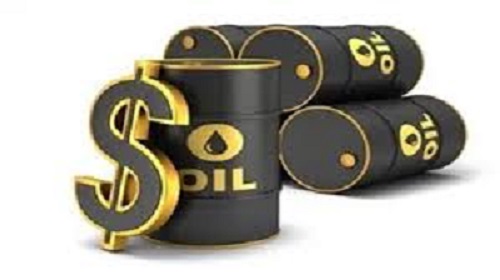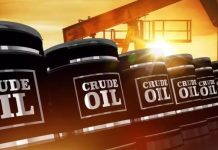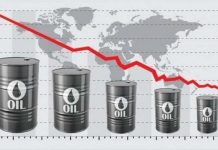After what seemed to be trend reversal last week to $28 per barrel, the price of crude oil, yesterday, tumbled with Nigeria’s premium grade, Bonny Light, trading at $22.46 per barrel.
Other international grades, Brent and WTI also lost grounds trading at $28.33 and $22.46 respectively.
Again, this latest price has underperformed the latest cut in the oil price benchmark for Nigeria’s 2020 Budget.
The outbreak of Coronavirus (COVID-19) across the world had pressured down the oil price, and the federal government was forced to drop the benchmark to $30 from the initial $57.
Meanwhile, following the oil price decline at the international market, the Federal government through the Ministry of Petroleum Resources, MPR, dropped the price of Premium Motor Spirit, PMS, popularly known as petrol to N125 per litre, from N145 approved template in 2015.
Oil prices have fallen for four straight weeks and have given up about 60 per cent since the start of the year. Prices of everything from coal to copper have also been hit by the crisis, while markets in bonds and stocks enter rarely charted territory.
The market has had to contend with the twin shocks of the demand crash caused by the COVID-19 pandemic and the unexpected oil price war that erupted between leading producers, Russia and Saudi Arabia, earlier this month which undermined production cut-back expected to have helped stabilise the price. The current production cut deal expires this month.
In a swift response, the Independent Petroleum Marketers Association (IPMAN) has lauded the federal government’s decision to reduce the price of Petroleum Motor Spirit (PMS) in the country, noting that it would give Nigerians the opportunity to buy more volumes with little money.
The Zonal Chairman, Independent Petroleum Marketers Association of Nigeria (IPMAN), South West, Mr Dele Tajudeen, who made the disclosure in Lagos, stated that the reduction would also see the capital used by petroleum marketers in buying the products reduced.
He however stated that the directive has been met with mixed feelings as it comes with both positive and negative impacts on the Nigerian economy. He also tasked the Nigerian National Petroleum Corporation, NNPC on the need to carry stakeholders along when issuing policies, saying that it would help petroleum marketers adjust their operations according to demand.
He said: “The reduction will further alleviate the masses’ problems especially at a time when the nation is experiencing the Covid-19 outbreak affecting every facet of life even the developed countries.
“The virus has paralyzed the global economy and it has affected our main source of income generation as a nation which has dropped to $24 per barrel. The reduction will enable people to buy more with little money and they can get more volumes. It is a welcome idea and we appreciate the move from the federal government. We want to assure the masses that as a body we will abide by the directives of NNPC, however, the pronouncement has affected us positively and negatively.
Source: VON













